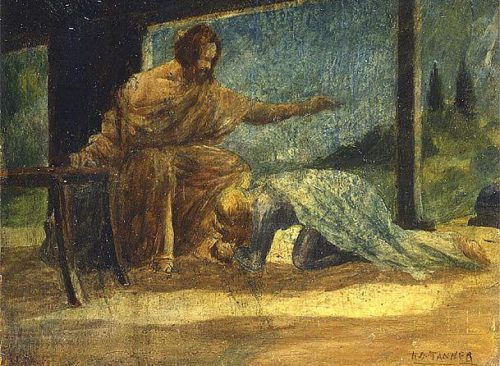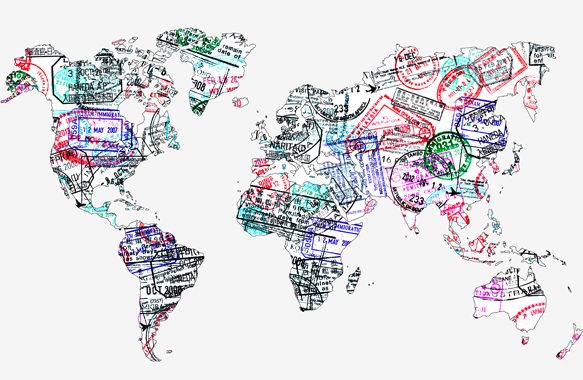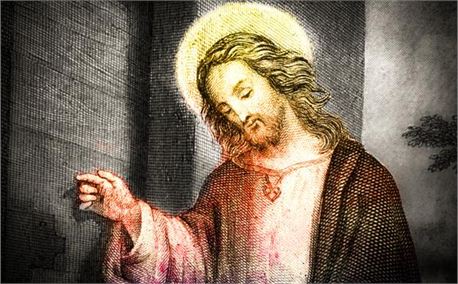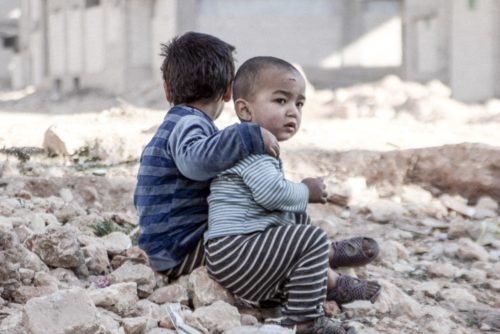Recently I traveled to Mexico for one of World Methodist Evangelism’s regional training seminars. Part of the mission of World Methodist Evangelism is to equip people to share their faith gracefully and authentically. Our WME Institute is a significant vehicle for this work and we hold seminars regularly all around the world. This time, it’s Mexico. In April it will be Kyrgyzstan, in August, New Zealand.
One of the most meaningful aspects of our work is the opportunity to bridge cultural boundaries. We follow a God who transcends all boundaries, therefore, we do too; and it’s always amazing to see what God does when we’re faithful in that.
Sadly, it’s not always easy, crossing boundaries. Our world is a fragmented, boundary-laden place where group after group, nation after nation, calls on God as a validation of its own agenda. It can be hard to find God in all that. Yet my experience confirms, time and again, the tremendous power of the Gospel to transcend boundaries and come alive in the lives of dramatically different kinds of people. So I keep crossing boundaries, counting on God to continue to show up in dramatic and transformative ways.
I’m reminded of Vincent Donovan’s experiences with the Masai people in Africa. He tells of his ministry with these people in Christianity Rediscovered and years ago, this book had a great impact on me as I was shaping my own understanding of evangelism. In relating the Gospel message to the Masai, Donovan begins by telling them about the God of the tribe of Abraham who “had become a God who was no longer free. He was trapped in that land, among that tribe. He had to be freed from that nation, that tribe, that land in order to become the High God.”
He tells them about God calling Abraham to leave his land, his people, his tribe; to travel to a land God would show him. He shares that God promised that all nations would be blessed through Abraham if he did this. Then he challenges the Masai, suggesting that they might need to leave their nation and tribe and land – at least in their thoughts – and go in search of the High God, the God of all tribes, the God of the world.
Donovan suggests, “Perhaps your God is not free. Do not try to hold him here or you will never know him. Free your God to become the High God. You have known this God and worshiped him, but he is greater than you have known. He is the God not only of the Masai, but also my God, and the God of the Kikuyu and Sonjo, and the God of every tribe and nation in the world…There is only the God who loves us no matter how good or how evil we are, the God you have worshiped without really knowing him, the truly unknown God – the High God.”
After listening attentively, someone asks a simple, but profound question, “This story of Abraham – does it speak only to the Masai? Or does it speak also to you? Has your tribe found the High God? Have you known him?”
As we stand at the dawn of a new year, that question seems as significant now as it was then. Do we know the High God? As an American, I live in a country with a history of being supremely confident that “almighty God” was and is on our side – regardless of what war we’re fighting. And currently in American culture, that confidence is even more narrowly focused within political and ideological groups. God is on “our side.”
But which god is that? Is the god we invoked to bless our troops in Vietnam as they “destroyed villages in order to save them,” the same god invoked by the pope to bless the troops of Mussolini just before they plundered Ethiopia? Is it the same god as the French God of glory – le bon Dieu – or the German Gott, der Allmächtiger – or the god who will “bless” America and make her great again?
None of these sounds like the High God to me, any more than Allah or Buddha appear to be the High God.
We need to rehear the message of Abraham – leave your land, your nation. Learn of the High God, the God of the world who desires to bless all nations.
Part of being a Christian is sharing our faith in God with others, building bridges to create relationships. That makes the Masai’s question extremely important – do we really know the High God? Donovan’s answer strikes me as the most honest answer:
No, we have not found the High God. My tribe has not known him. For us, too, he is the unknown God. But we are searching for him. I have come a long, long distance to invite you to search for him with us. Let us search for him together.
Maybe together we will find him.
What would it look like if the God of the world – the High God – actually was the God of all nations and tribes? What would it look like if we could truly grasp what Paul was trying to say in his letter to Titus: the grace of God has been revealed, bringing salvation to all people.
What would it look like if we could get a handle on the truth that the God of the world loves each tribe and nation equally? How would it change how we looked at other tribes and clans – how we acted and related to each other?
It’s easy to talk about the world being one, about all of us being children of God and of equal value and importance. But I don’t think we realize how absolutely radical that concept really is. We don’t realize how radical it is because we’ve inherited the idea from the Gospel – it’s an essential part of the good news of Jesus Christ, a message that turned the world upside down when Paul and the first faith sharers began to witness to it.
This message turned the world upside down because it was so foreign to humans. We could never have come up with an idea as radical as the thought that God loves all of us, regardless of tribe or nation. We couldn’t have come up with it because we’re too focused on tribe and nation; and that focus has torn God’s world apart. Whether it’s between Hutus and Tutsis in Rwanda, or between blacks and whites in the United States, or between Arabs and Jews in the Middle East; whether it’s because of gender differences, economic differences, religious differences, class differences, the result is always the same – one group positioned against another, violence in body or in spirit always at the forefront. That’s the human idea. That’s the force Peter and Paul fought against so desperately; that’s the elementary human evil the whole bible squares off against.
When WME brings the Methodist Wesleyan family together, we pray – each in our own language. We pray in our own languages because the God made real in Jesus Christ is the God of all languages, the One who invites us to speak in our heart language, the language our mothers taught us. That God would hear us as we pray in our heart language – whatever that might be – points to the whole creation nature of the good news. It points to the fact that the gospel, that secret hidden from the beginning of the world, is bigger than culture – it’s supracultural. It broke into our world from the outside, from beyond any of us, in order to be offered to all of us.
The good news is that salvation is the result of the love of God and God’s grace at work in each of our lives. God’s grace doesn’t exist exclusively in the United States or Africa or anywhere else. Every nation and tribe that would seem “foreign” to us is a nation or tribe already loved by God. Before we ever arrive, before we ever encounter, before we ever begin to build a bridge, God is there, loving and making signs of that love manifest in the lives of all the peoples of the earth. Before we ever make any connection, before we ever attempt to share our faith, God is there and God’s saving work has already begun.
If the God made real in Jesus Christ were not already in love with the entire world, he could not truly be the High God we know him to be. Instead, the wise old Masai man Ndangoya would be correct in saying, “This High God of whom you speak, he could not possibly love Christians more than pagans, could he? Or he would be more of a tribal god than ours.”
The question remains. Do we really know the High God? How would our lives change if we really understood the fact that the God made real in Jesus Christ – the God of the world – loves each tribe and nation equally? How would that understanding change how we looked at other tribes and clans – even in our own communities? How would we act and relate to others?
What next step do we need to take so that our lives reflect the gospel truth that the God made real in Jesus Christ – the High God – is the God of the whole world, of every heart language, of every nation and tribe?
Do you know the High God? Are you searching for him?
I invite you to search for him with me. Let’s search for him together. Maybe together we will find him.
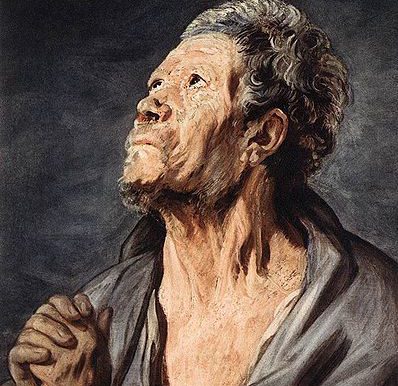
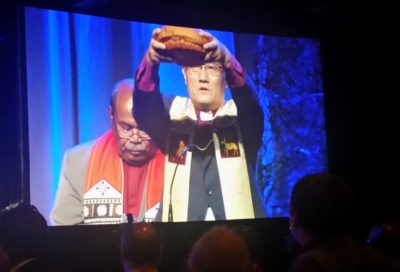
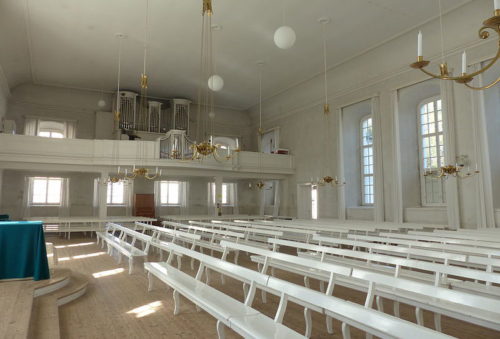

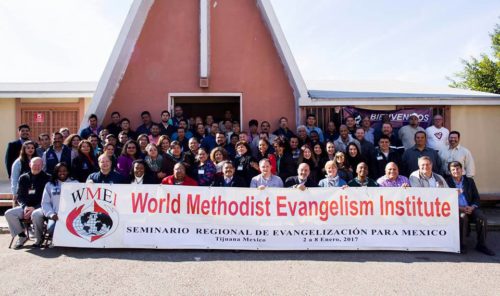
 Winston has led our Institute for 25 years, so his departure in June will leave a significant gap. His depth of spirit, personal passion for sharing the good news of Jesus Christ, and faithful work to equip others for evangelism have been instrumental in the success of WMEI.
Winston has led our Institute for 25 years, so his departure in June will leave a significant gap. His depth of spirit, personal passion for sharing the good news of Jesus Christ, and faithful work to equip others for evangelism have been instrumental in the success of WMEI.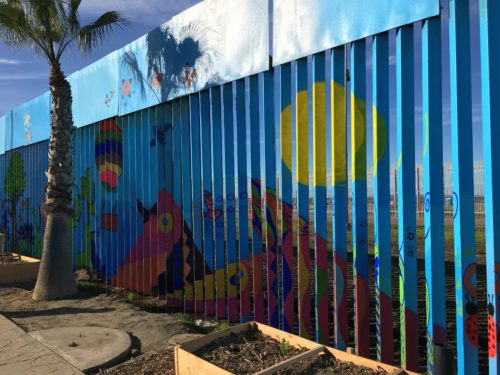

 There is no gate on the US side. But for a while, though separated by wire and watched by US border patrol officers, families can talk, clasping fingers through the small gaps, connecting across the barrier that divides them.
There is no gate on the US side. But for a while, though separated by wire and watched by US border patrol officers, families can talk, clasping fingers through the small gaps, connecting across the barrier that divides them.
